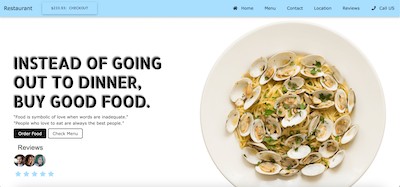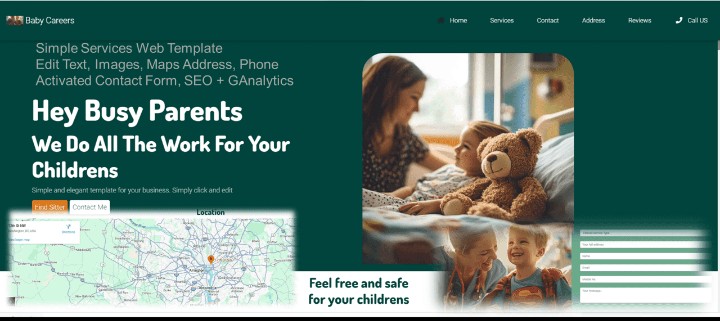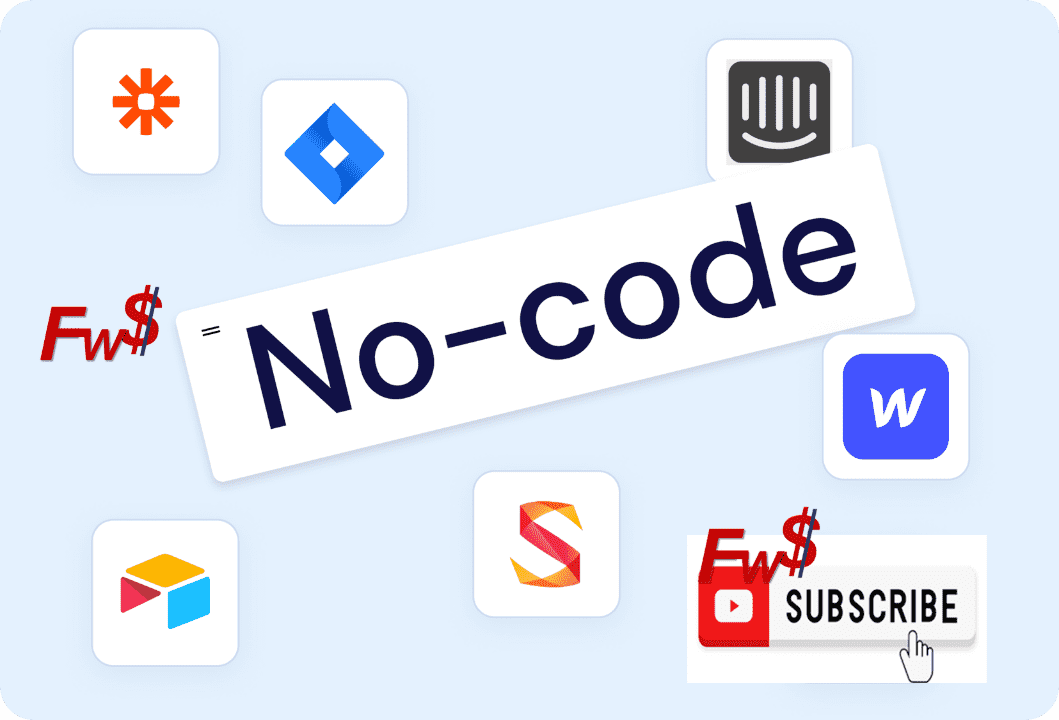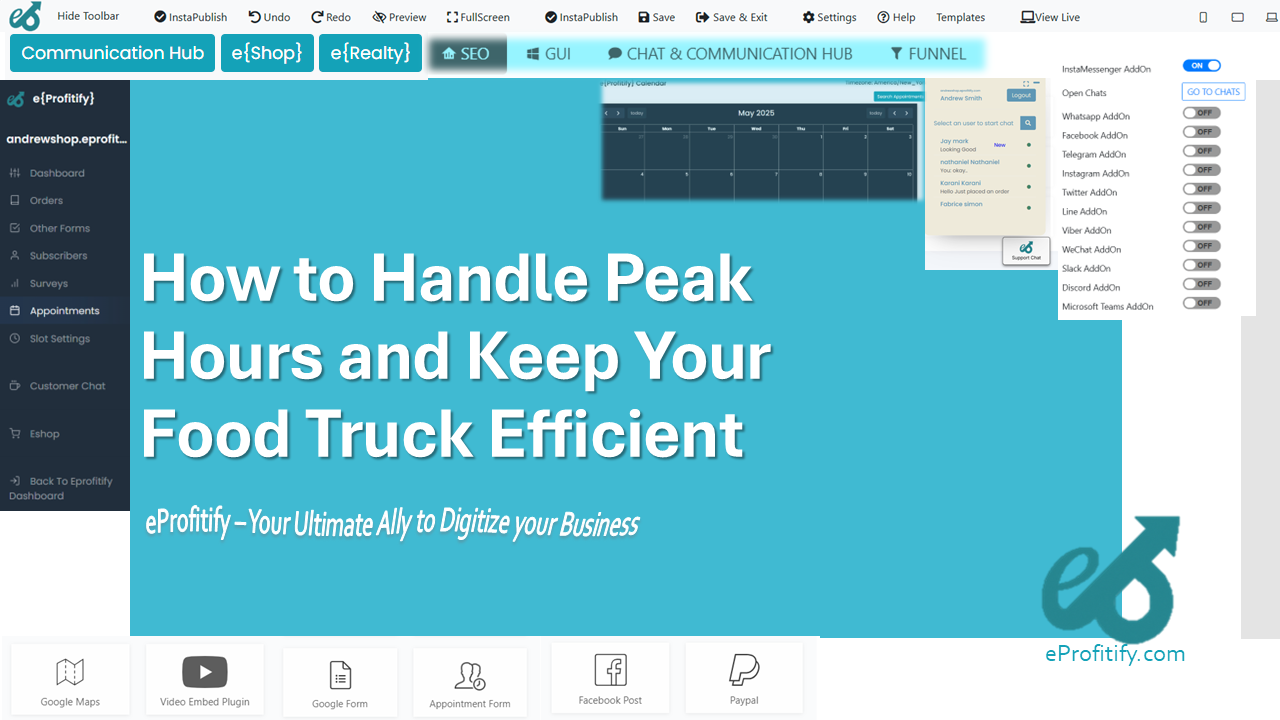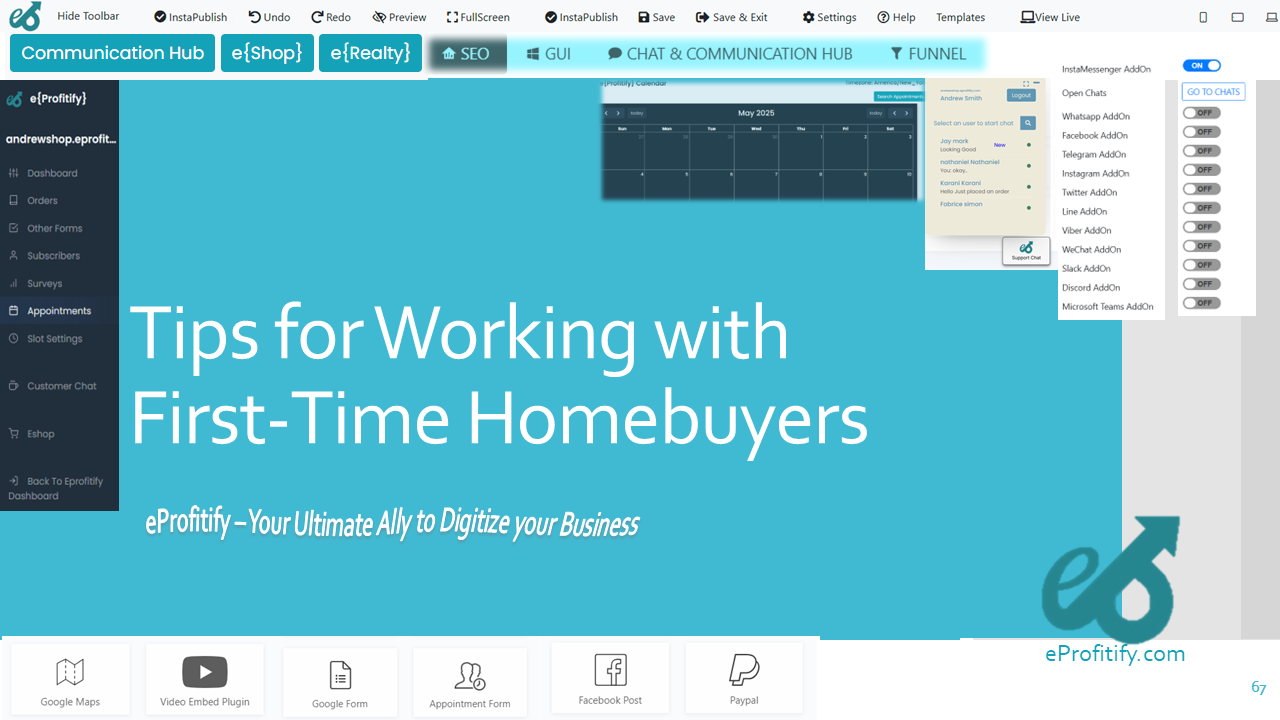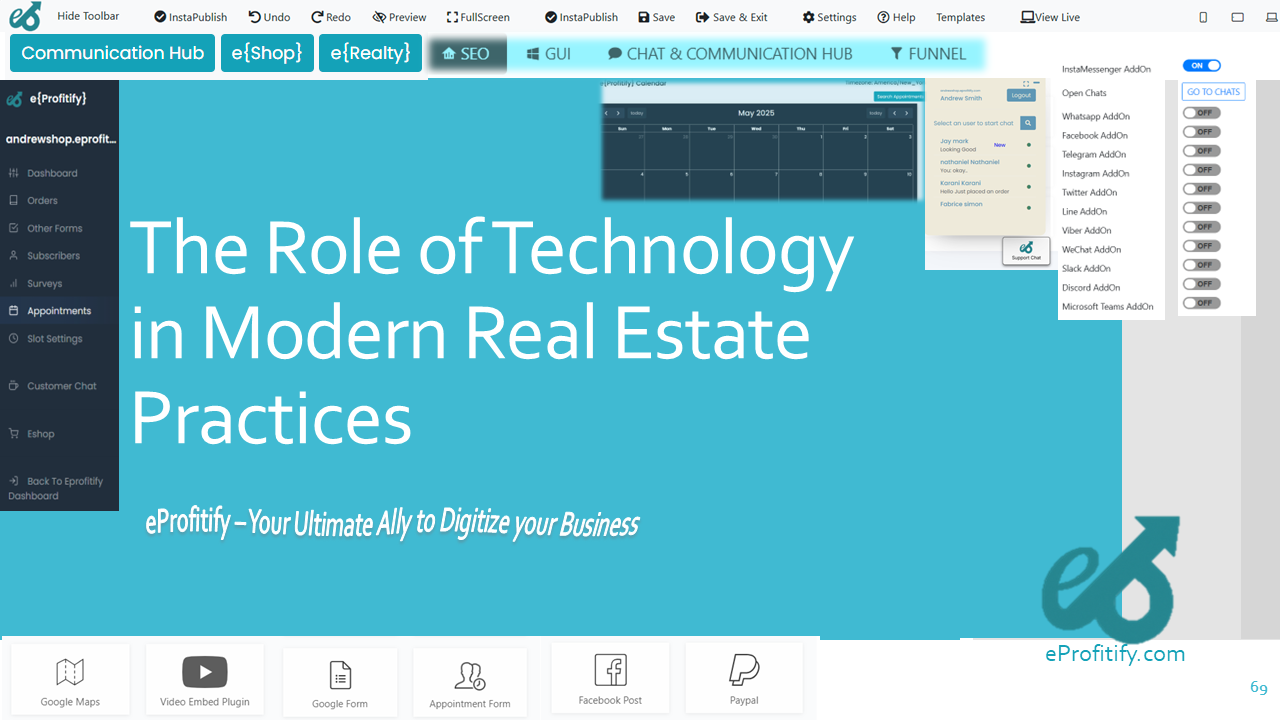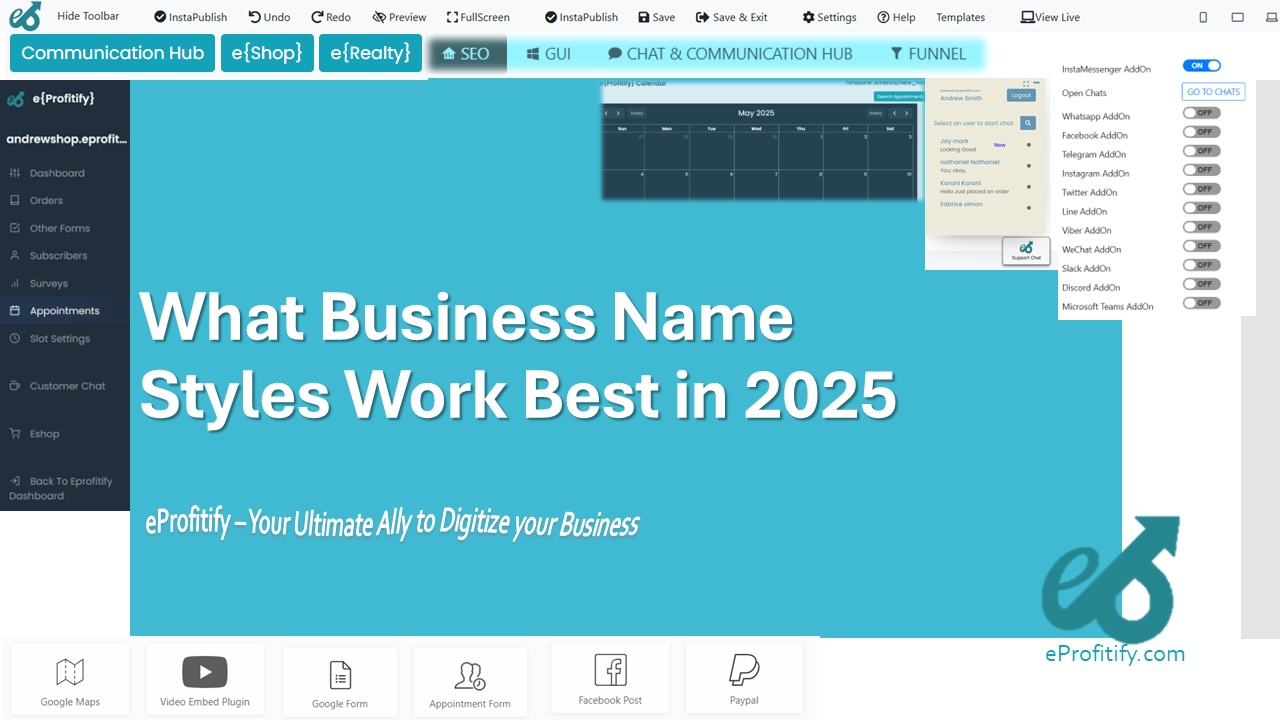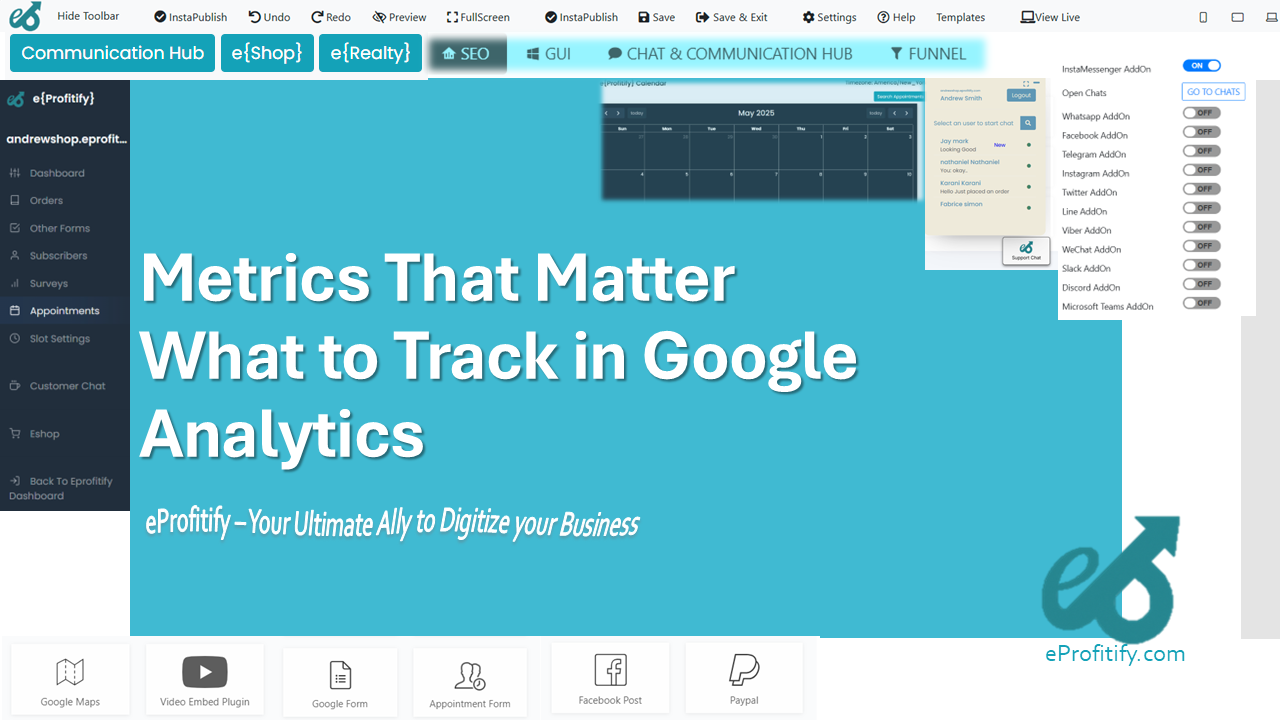Using eDocuflow for Freelance Contracts and SOW Agreements
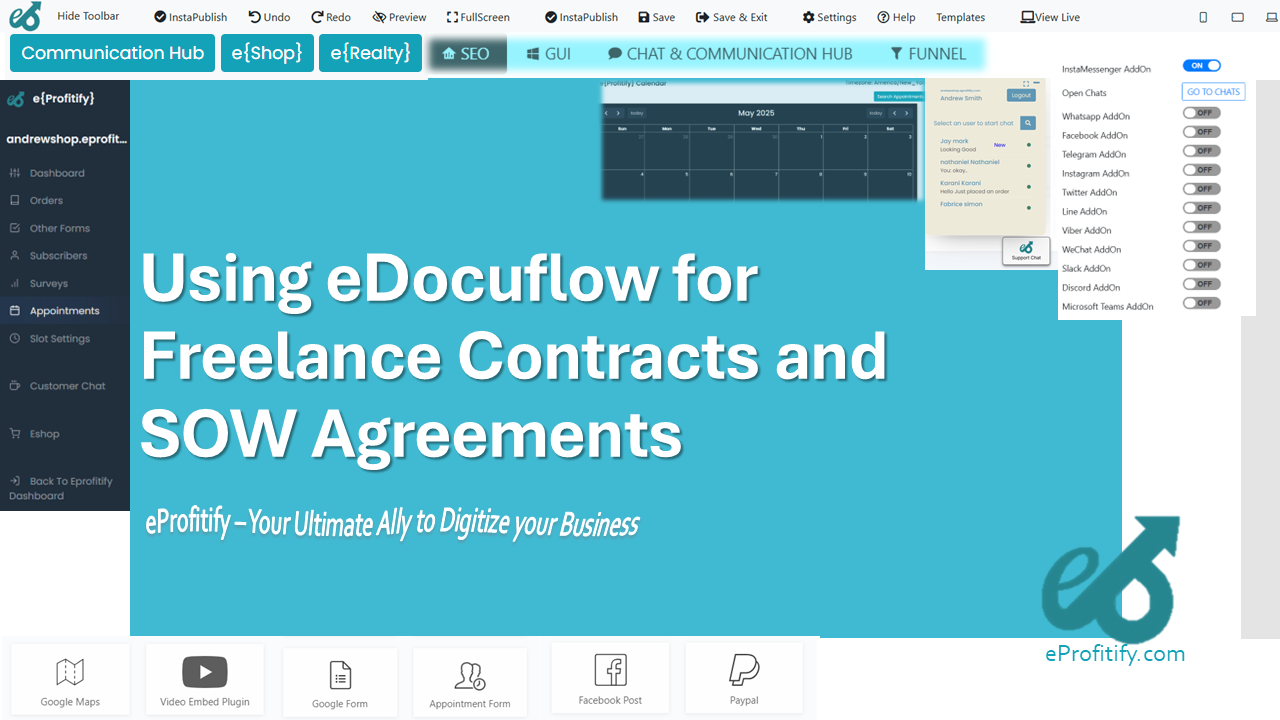
Schedule a LIVE Zoom call with an eProfitify Expert.
The freelance economy has transformed modern work dynamics, with platforms like Upwork reporting that 39% of the U.S. workforce engaged in freelance work in 2023, contributing $1.35 trillion to the economy. However, freelancers often face challenges, including payment delays (experienced by 70% of freelancers, according to a Payable survey) and scope creep due to poorly defined contracts. These issues underline the critical need for robust tools to manage agreements efficiently. Enter eDocuflow, a contract automation platform designed to streamline freelance contracts and Statements of Work (SOW), and eprofitify, a comprehensive website management tool that complements document workflows with client engagement and business automation features.
eDocuflow: Revolutionizing Freelance Contracts and SOWs
eDocuflow simplifies contract creation, negotiation, and execution through these key features:
- Template Libraries: Pre-built, legally vetted templates for contracts and SOWs enable freelancers to generate documents in minutes. A McKinsey study found that automating repetitive tasks like contract drafting can save professionals up to 20 hours monthly.
- Digital Signatures: Integrated e-signature functionality accelerates approval cycles. Forrester Research notes that e-signatures reduce contract processing time by 80%, mitigating delays.
- Version Control and Collaboration: Real-time editing and audit trails ensure clarity in revisions, addressing the 45% of freelancers who report disputes over ambiguous project scopes.
- Automated Reminders: Alerts for deadlines, payments, or renewals combat late payments, which cost freelancers an average of $6,390 annually (FreshBooks).
- Cloud Storage: Secure, centralized access to documents eliminates the 23% productivity loss linked to disorganized file management (IDC).
By integrating eDocuflow, freelancers reduce administrative tasks, enforce clearer terms, and improve compliance. A 2022 survey by Contractbook revealed that 68% of freelancers using contract automation tools reported faster payment cycles and fewer disputes.
eprofitify: Elevating Freelance Business Management
While eDocuflow optimizes contractual processes, eprofitify serves as a unified platform for website publishing and business management, offering:
- Instant Messaging: Secure in-app communication bridges the gap between contract terms and real-time client discussions, crucial for the 62% of clients who prioritize responsiveness (HubSpot).
- Appointment Management: Automated scheduling reduces coordination overhead, with tools like Calendly reporting a 40% decrease in no-shows when using reminders.
- Ecommerce Integration: Sell services, digital products, or subscriptions directly through a freelancer’s website. Global ecommerce growth (8.9% in 2023, per Statista) highlights the value of embedded payment gateways.
- CRM Systems: Track client interactions, project histories, and preferences. Salesforce data shows CRM usage boosts client retention rates by 27%.
- Analytics Dashboards: Monitor website traffic, conversion rates, and project profitability to inform business decisions.
Synergy Between eDocuflow and eprofitify
Combining eDocuflow’s contract automation with eprofitify’s operational tools creates a seamless workflow. For instance, a freelancer can draft an SOW in eDocuflow, share it via eprofitify’s client portal, discuss terms through integrated messaging, and schedule deliverables using the appointment system. Payments triggered upon milestone completions (tracked in eDocuflow) can be processed through eprofitify’s ecommerce tools, while CRM logs all interactions for future reference. This integration addresses the top freelance pain points: 58% cite administrative tasks as a barrier to growth (QuickBooks), and 53% struggle with inconsistent cash flow (PYMNTS).
Conclusion
In a sector where 52% of freelancers prioritize tools that save time (Upwork), eDocuflow and eprofitify offer a formidable solution. The former enforces professionalism and clarity in agreements, while the latter streamlines client management and revenue operations. By adopting both platforms, freelancers can reclaim 15–30% of their time lost to manual tasks (Accenture), reinvesting it into client acquisition or skill development. As the gig economy expands, leveraging such technologies will differentiate thriving freelancers from those stagnating under administrative burdens.
